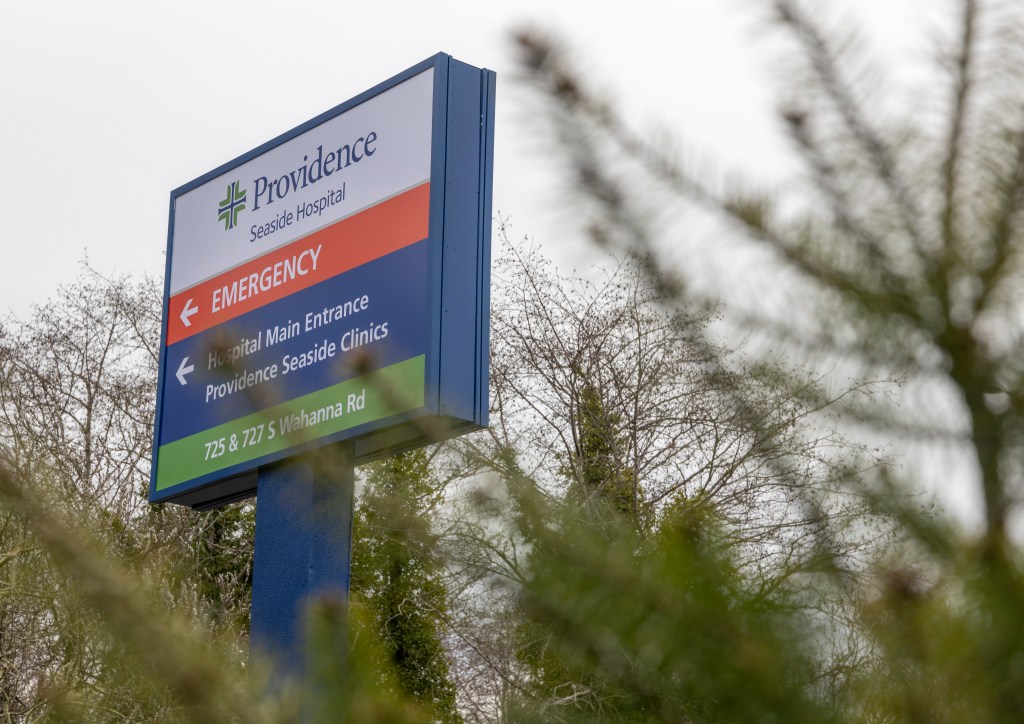PSH faces uncertainty amidst federal budget cut bill
Published 4:14 pm Monday, July 14, 2025

- Providence Seaside Hospital is taking action to reduce spending and undergo a restructure. The Astorian file photo
Rural hospitals across the country may be facing budget cuts and closures
After President Donald Trump signed into law a landmark spending bill, the “One Big Beautiful Bill Act,” rural hospitals across the United States are facing uncertainty, including Providence Seaside Hospital.
Trending
The new legislation, which was signed into law on Independence Day, is expected to cut federal health care spending by nearly $1 trillion over a decade.
The cuts, which include reductions to Medicaid, a government program that ensures health coverage to low-income Americans, and the Affordable Care Act, are projected to cause nearly 12 million people to become uninsured by 2034, according to the Congressional Budget Office.
Because of the reductions, hospitals, nursing homes, and community health centers across the country may see a decline in revenue, reduction or halt in services, or even closures.
According to a letter signed by four Democratic Senators on June 12, including Oregon Senators Jeff Merkley and Ron Wyden, more than 300 rural hospitals were listed as being at risk of closing. One of the hospitals on the list was Providence Seaside Hospital.
The list was compiled after looking at financial data, including whether the hospital had been unprofitable for the last three years and if it serves a disproportionately high share of patients on Medicaid, according to the letter. PSH was listed as a hospital with three years of negative financial margins.
According to a statement from Providence to The Astorian, PSH will remain open, but it is taking action to reduce spending and will undergo a restructure.
Trending
Some of the budget reductions include discretionary expenses such as travel and community sponsorships, while the restructure will help maximize resources since the “status quo is no longer an option,” the statement said.
The statement also said that changes that might impact patient access to clinical services are being evaluated.
However, the hospital did not confirm whether the restructuring includes employee layoffs.
According to PSH Intensive Care Unit Nurse Meg Calvert, seven clinical nurses were laid off in June — weeks prior to the BBB’s July 4 approval.
Oregon State Representative Cyrus Javadi, who represents counties including Clatsop, Tillamook, and parts of Columbia county, described the possible closure of PSH as an “earthquake,” especially since it is one of three hospitals that serve both Clatsop and Tillamook county.
“They’re (PSH) a life savor for that community, especially during the summer months when there’s people from all over,” Javadi said. “It will be (a) huge loss for the community.”
Not only would a possible closure impact nearby residents, but also the staff and overall community, said Javadi.
U.S. Rep. Suzanne Bonamici agreed.
“It (cuts) doesn’t just affect people on Medicaid,” Bonamici said. “It affects the whole community because the people on Medicaid lose their coverage, and a lot of those are kids and anybody on the Oregon Health Plan.”
During the 2025 state Legislative Session, Javadi supported numerous house bills that would help secure funding to hospitals amidst the federal budget cut bill, including HB 2010 and HB 2385.
HB 2010, which passed in the Oregon State House in February, helped secure funding for the state’s Medicaid program, the Oregon Health Plan. The bill will extend a 6% tax on hospital net revenues and a 2% tax on health insurance premiums and payments to managed care organizations, according to a March 1 article at grantspasstribune.com.
HB 2385, which was passed in the Oregon Senate in May, ensured that health care providers, including hospitals, could continue contracting with local pharmacies to dispense medications to patients in rural areas and low-income and underserved patients, according to a June 3 article at kobi5.com, a news station based in Medford.
Calvert said the overall cuts are threatening and hurtful.
“We (health providers) live and work in this community because we want to be here and want to help our patients,” Calvert said. “These cuts, they are hurting… and they are threatening our ability to provide quality work.”









